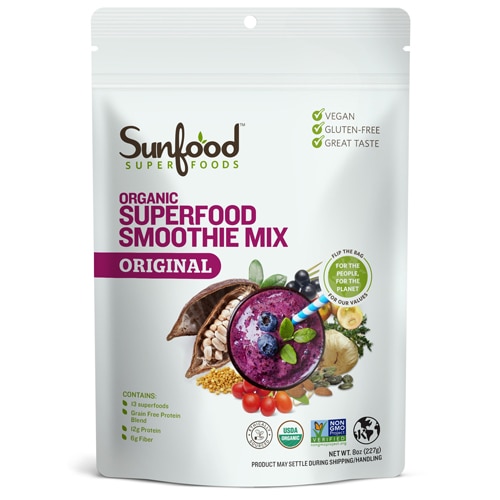The ingredients to a happy life may be ripe for the picking in your backyard garden, or at the corner grocery. Researchers in Britain and Australia say people report a sharp spike in happiness after switching to a diet rich in fruit and vegetables. In fact, the happiness bounce is so great that for some, it is equivalent to the emotional surge an unemployed person receives after finally landing a job.
The study – which followed more than 12,000 people – found the well-being benefit occurs within two years of beginning the produce-packed diet. Happiness rises for each portion of fruits and vegetables up to eight portions daily.
The study findings do not surprise Elizabeth Pivonka. "There is a strong biological component to mental health," says the registered dietitian and president and CEO of the Produce for Better Health Foundation in Hockessin, Delaware.
Healthier body, better mood?
The British and Australian researchers did not uncover why eating more fruit and vegetables boosts mood. However, theories on the connection between food and mood have been suggested.
For example, pigments known as carotenoids -- found in produce such as carrots, cantaloupe, sweet potatoes and kale -- have been linked to higher levels of optimism.
Fruits and vegetables can also be good sources of B vitamins that may increase levels of the brain neurotransmitter serotonin. Higher levels of serotonin are thought to increase happiness.
Such B vitamins include folate (found in spinach, Brussels sprouts and oranges) and vitamin B6 (found in peas and bananas).
Pivonka adds that of all foods, fruits and vegetables have the largest variety of essential nutrients in the form of vitamins and minerals.
Fruits and vegetables also have the largest variety of phytonutrients, which are phytochemicals not essential to health, but which are thought to be beneficial.
Many of these phytonutrients remain unexplored, and may have benefits – mood-enhancing or otherwise – that are yet to be discovered.
"Phytonutrients are to the field of nutrition what vitamins and minerals were 80 years ago," Pivonka says. "There are thousands of them. Many have not been fully studied."
Both nutrients and phytonutrients work at the cellular level, playing a role in metabolism, detoxification, growth and development, Pivonka says.
Many also act as antioxidants, and have anti-inflammatory and antibacterial properties. Vitamins and minerals also are necessary to prevent many diseases.
"With all of this, it is not a surprise to me that what you eat impacts your mental health, including mood," Pivonka says.
Boosting your consumption of fruits and vegetables
America remains a junk-food nation, and millions of people are far more likely to reach for ice cream and potato chips than fruits and vegetables.
If you are among those with an incurable sweet – or salty – tooth, there are tricks you can employ to make fruits and vegetables more appealing.
For example, Dutch researchers found kids eat almost twice as much fruit when it is presented in a more appealing manner as part of a healthy diet plan – such as an array of fruit pieces skewered on a flagged cocktail stick and inserted into a watermelon. The trick might work for adults, too.
Other ways to boost your intake of fruits and vegetables include:
- Add them to salads
- Blend them into smoothies
- Combine them in omelets, soups and other dishes
Other diet experts suggest simply buying more fruits and vegetables. The more you have lying around the kitchen, the more likely you are to grab and eat them.
Pivonka recommends that half of all the meals and snacks you eat contain some type of fruit or vegetable, or both.
"A balanced diet with plenty of fruits and vegetables, whole grains, lean meats, and low-fat dairy will provide the essential nutrients that your body and brain need to function at their best," she says.




